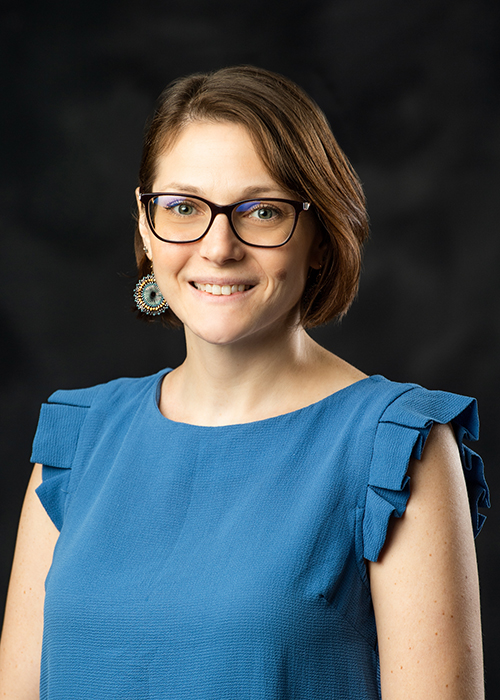Analogies—helpful or hurtful? NSF funding helps MSU psychology researcher find out
Contact: Sarah Nicholas
STARKVILLE, Miss.—“The Earth’s crust is like a multi-layered cake” is just one analogy educators use to teach students about the complex layers of the Earth. Now a Mississippi State University psychology faculty member is using part of a $1.5 million National Science Foundation grant to study how analogies may help—or hinder—student learning.

“Analogies pervade textbooks and other teaching materials in geology and other STEM fields,” said Allison Jaeger, an assistant professor in MSU’s Department of Psychology and principal investigator of the NSF grant. “Analogies are widely thought to be effective teaching tools because they take something that students are already familiar with and relate it to a new unfamiliar concept. But this same feature could potentially lead to illusions of understanding.”
Jaeger said students may assume that if they understand the familiar thing—the layered cake analogy—they will easily understand unfamiliar topics such as strata in the Earth’s crust. However, the scientific concept may be far more complex and possess features that the simple, familiar example does not.
“If the limits of the analogy are not detailed for the student, they may become overconfident in their knowledge and fail to put forth the additional effort needed for full understanding. This would be an error in metacomprehension that can undermine effective self-regulated learning behaviors,” Jaeger said.
Part of a collaborative grant with researchers at the University of Illinois at Chicago and Northern Illinois University—“Collaborative Research: Effects of instructional analogies on illusions of understanding in Introductory Geoscience”—Jaeger is working with MSU geosciences faculty members Kelsey Crane and John Ezell managing $305,201 of the $1,563,878 award.
At MSU, the researchers will explore how analogies are used in undergraduate introductory geology courses to explore their potential negative impact on the accuracy of students’ judgments about their own knowledge and to develop lessons aimed at eliminating or reducing this negative impact.
A native of Minnesota, Jaeger has been an MSU faculty member since 2022. She teaches undergraduate statistics in psychology as well as graduate-level cognitive psychology courses.
For more details about MSU’s College of Arts and Sciences and the Department of Psychology, visit www.cas.msstate.edu and www.psychology.msstate.edu.
Mississippi State University is taking care of what matters. Learn more at www.msstate.edu.